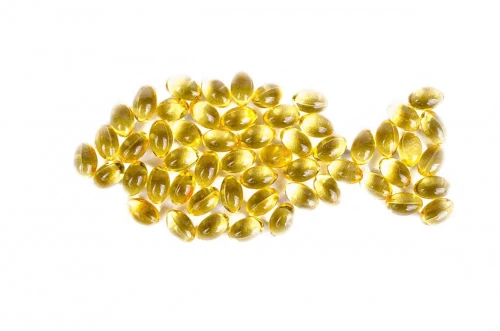Omega-3 fatty acids are essential fats that offer a myriad of health benefits for the body and mind. In this comprehensive guide, we delve into the world of omega-3s, exploring their types, functions, sources, and the profound impact they have on heart health, brain function, inflammation, and more. Discover how incorporating omega-3s into your diet can contribute to a healthier and more vibrant life.
3 Types of Omega-3 Fatty Acids
There are three main types of omega-3 fatty acids: EPA (eicosapentaenoic acid), DHA (docosahexaenoic acid), and ALA (alpha-linolenic acid). Each type plays a unique role in supporting different aspects of health.
6 Health Benefits and Functions
Omega-3 fatty acids offer a range of health benefits:
1. Heart Health
Omega-3s are known to reduce the risk of heart disease by lowering triglycerides, reducing blood pressure, and improving overall heart function.
2. Brain Function
DHA, a major component of brain tissue, supports cognitive function, memory, and mood regulation. It is particularly important during pregnancy for fetal brain development.
3. Inflammation
Omega-3s possess anti-inflammatory properties that can help alleviate chronic inflammation, which is linked to various health conditions.
4. Eye Health
DHA contributes to the health of the retina, supporting vision and reducing the risk of age-related macular degeneration.
5. Joint Health
Omega-3s may help manage symptoms of arthritis and improve joint mobility by reducing inflammation.
6. Skin Health
These fatty acids support skin health by maintaining its moisture content, reducing dryness, and potentially mitigating skin disorders.
4 Major Dietary Sources
Incorporating omega-3s into your diet is crucial. Dietary sources include:

1. Fatty Fish: Salmon, mackerel, sardines, and trout are rich in EPA and DHA.
2. Flaxseeds and Chia Seeds: These seeds are high in ALA, a plant-based omega-3.
3. Walnuts: Walnuts contain ALA and provide a convenient source of omega-3s.
4. Krill Oil and Algal Oil: These supplements offer EPA and DHA for those who don’t consume fish.
Supplementation
For those who struggle to obtain enough omega-3s from dietary sources, supplements can be beneficial. Consult a healthcare professional before starting any supplementation.
Balancing Omega-3 and Omega-6
It’s important to maintain a balanced ratio of omega-3 to omega-6 fatty acids. Western diets often have an excess of omega-6, which can promote inflammation. Omega-3s help restore this balance.

Hi i am kavin, its my first time to commenting anywhere, when i read this paragraph i
thought i could also create comment due to this brilliant paragraph.
Very good site you have here but I was wondering if you knew of any message boards that
cover the same topics talked about here? I’d really love to
be a part of community where I can get opinions from other experienced individuals that
share the same interest. If you have any suggestions, please let me know.
Cheers!
vurcazkircazpatliycaz.BWJuG97tQV5t
vurucuteamgeldi.vCKq3hTDqRiz
daktilogibigibi.0jp5tbMDJSSg
yandanxvurulmus.shLYlensWmKp
xyandanxvurulmus.bWLX1jXk6iif
xbunedirloooo.y7RLF7XVGlQA
us xyandanxvurulmus.k544MVdoOXhx
hermaean xyandanxvurulmus.w9WggvV1miv9
Thank you for any other great article. The place else may anybody get that kind of info in such
a perfect way of writing? I have a presentation next week, and I am on the search for such info.
It’s truly a great and useful piece of information. I am glad that you shared this helpful information with us.
Please keep us up to date like this. Thank you for sharing.
am siteleri 250tldenemebonusuxx.ewt7ErO9qhVr
watch porn video eyeconartxx.Jji0wMfRDTi2
craft porn vvsetohimalxxvc.G60aAhcT1Wxd
porn hd hd hd ggjennifegg.i1V3rqxeaPY
free full hd porn videos download ggjinnysflogg.A2lPmPhPLQX
Way cool! Some very valid points! I appreciate you writing this write-up plus the rest of the site
is also really good.
I loved as much as you’ll receive carried out right
here. The sketch is tasteful, your authored subject matter stylish.
nonetheless, you command get got an nervousness over
that you wish be delivering the following. unwell unquestionably come
more formerly again as exactly the same nearly
very often inside case you shield this hike.
Awesome! Its genuinely awesome post, I have
got much clear idea on the topic of from this paragraph.
goodhere Man Masturbating porn vurucutewet.v7kcHHKGYBJ
ladyandtherose Man Masturbating porn backlinkseox.VugyqGE6fbv
falbobrospizzamadison Webcam jkkıjxxx.i0XaWU3nr7T
MILF अश्लील qqyyooppxx.zNHPFVXVj0f
रूसी अश्लीलता के बारे में बतावल गइल बा hjkvbasdfzxzz.y09DfZZ8zzL
व्यभिचारी पति अश्लील txechdyzxca.Fbimy5HVggO
किशोर अश्लीलता hkyonet.rUvnzeoFN4D
ladesbet ਕਾਰਟੂਨ ਪੋਰਨੋਗ੍ਰਾਫੀ ladesinemi.3baRROYYPc7
ladesbet ザーメンポルノ ladestinemi.WRfCYqD0to2
Can you be more specific about the content of your article? After reading it, I still have some doubts. Hope you can help me.
Your article helped me a lot, is there any more related content? Thanks!